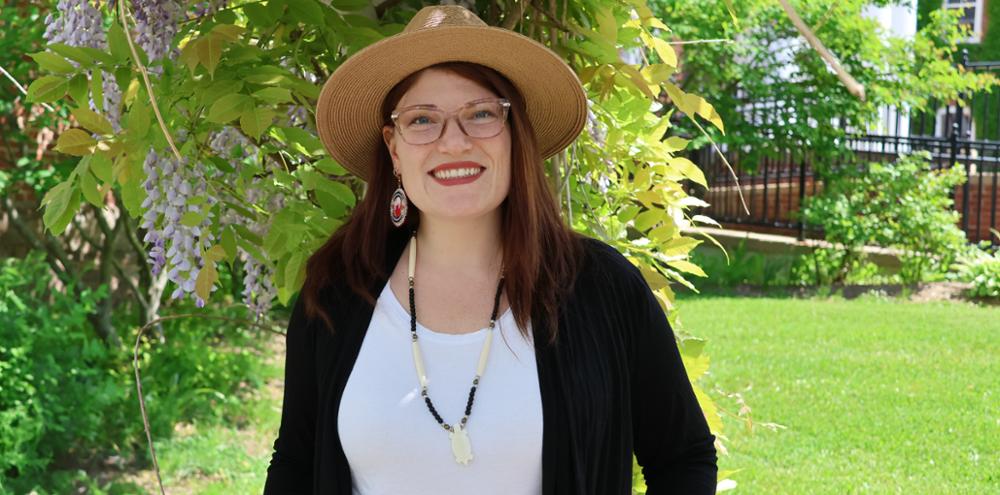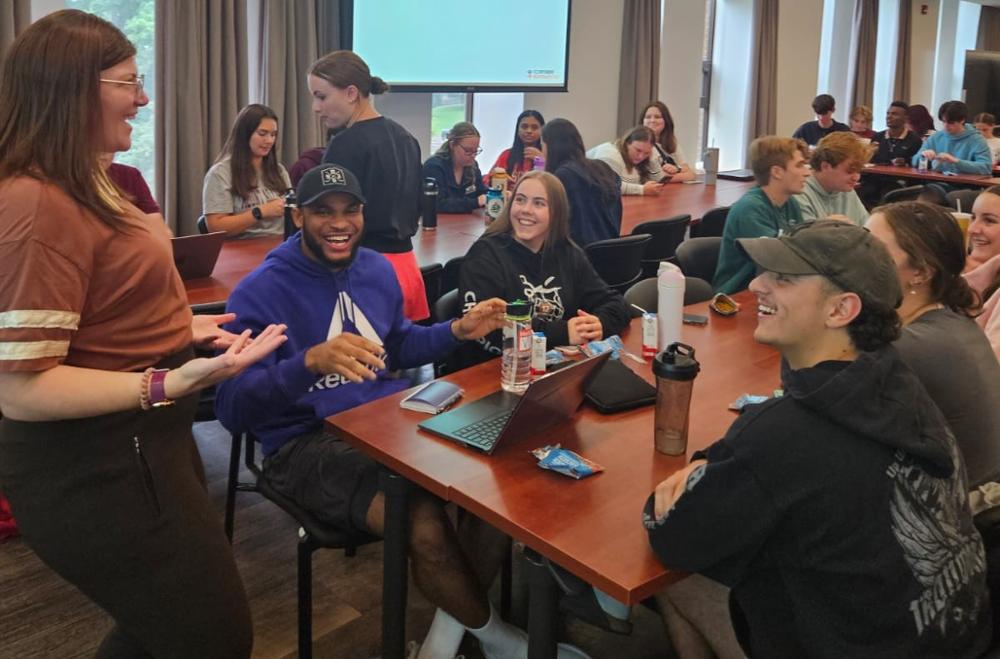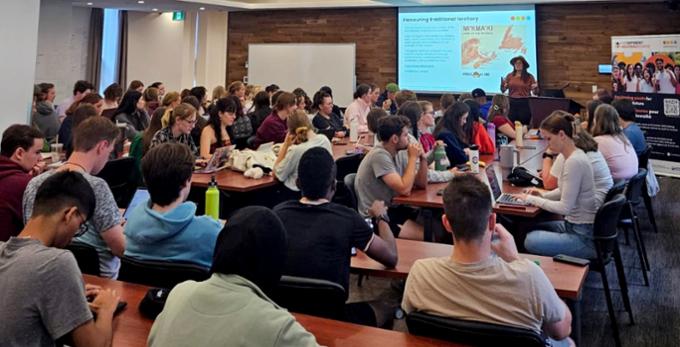Diversity, equity, and inclusion (DEI) skills are more important than ever in the classroom, the workplace, and beyond. Alumni Ashley Sheppard BAHons’14 believes it’s important to start building the skills early and is coming back to campus to share her global perspective, passion, and expertise with University of Regina students on October 4. Sheppard is the Manager, Learning & Knowledge Solutions for the Canadian Centre for Diversity and Inclusion (CCDI) and lead facilitator for their See Different program.
“The program encourages participants to see differently by learning to challenge bias and discrimination and see the world through an equity lens. Our ultimate goal is to inspire youth to become changemakers who work toward creating inclusive and equitable environments in their schools, workplaces, and communities,” offers Sheppard.

Sheppard, a Mi’kmaw woman from Newfoundland and U of R alum, went on to earn her master’s degree in international relations. She is multilingual and multicultural, having spent more than six years living and working abroad in five different countries. She speaks Japanese, French, and Spanish, and is currently learning the language of her people, Mi’kmaw. When it comes to dismantling the barriers to diversity, equity, and inclusion in Canada, she says youth hold the key.
“One of the biggest barriers in my opinion is the persistence of systemic discrimination in institutions and policies, which result in structural barriers that perpetuate inequity and limit opportunities for historically marginalized groups. These are often invisible, so our program aims to bring attention to them through education and awareness and to equip young people with the tools they need to foster real change,” explains Sheppard.
I would emphasize that the See Different program offers skills that go beyond any specific career path — it’s about equipping students with the tools to work effectively in diverse environments and lead inclusively. DEI skills are becoming increasingly valued in virtually every profession, whether in business, healthcare, education, or the arts. The ability to navigate diverse perspectives, foster inclusive spaces, and challenge inequity is critical to leadership and innovation. — Ashley Sheppard BAHons’14, Manager, Learning & Knowledge Solutions, CCDI
Dr. Sujatha Ross, Advisor for Equity, Diversity, and Inclusion (EDI) at the U of R, shares Sheppard’s goals and arranged for the See Different program to come to campus. Ross says the opportunity is an incredible resource for students. The Principles of DEI certificate compliments the EDI resources Ross has been working on such as the new EDI webpage, workshops and panel discussions for students and faculty, and events calendar.
“Difference is not something to fear, but something to discover in the friends we make and the people we meet,” says Ross. “U of R’s commitment to equity, diversity, and inclusion is evident in the ways we interact with one another, in the programs we offer, and in the policies that guide us. Providing access to the EDI Certificate on October 4 and EDI workshops and activities throughout the year, are just some of the ways in which the U of R is preparing students for today and their future.”
Sheppard has facilitated the Principles of DEI course on campuses across Canada. She’s keen to connect with students on the Prairies and help them become changemakers during their education and beyond. The one-day course will take place on the main campus at La Cité and is divided into two sections —Dimensions of Diversity in the morning and Stopping the Cycle of Bias, Prejudice and Discrimination in the afternoon. Lunch is provided free of charge.

Sheppard (left) engages with students during a See Different course. Credit: Ashley Sheppard
“I would emphasize that the See Different program offers skills that go beyond any specific career path—it’s about equipping students with the tools to work effectively in diverse environments and lead inclusively. DEI skills are becoming increasingly valued in virtually every profession, whether in business, healthcare, education, or the arts. The ability to navigate diverse perspectives, foster inclusive spaces, and challenge inequity is critical to leadership and innovation,” says Sheppard.
Reserve your spot today! There are limited seats and the deadline is October 1 at 12:00 p.m. CST.
Banner image: Sheppard teaches the See Different program to students across Canada. Credit: Ashley Sheppard
About the University of Regina
2024 marks our 50th anniversary as an independent University (although our roots as Regina College date back more than a century!). As we celebrate our past, we work towards a future that is as limitless as the prairie horizon. We support the health and well-being of our 17,000 students and provide them with hands-on learning opportunities to develop career-ready graduates – more than 90,000 alumni enrich communities in Saskatchewan and around the globe. Our research enterprise has grown to 21 research centres and 9 Canada Research Chairs. Our campuses are on Treaties 4 and 6 - the territories of the nêhiyawak, Anihšināpēk, Dakota, Lakota, and Nakoda peoples, and the homeland of the Michif/Métis nation. We seek to grow our relationships with Indigenous communities to build a more inclusive future.
Let’s go far, together.

